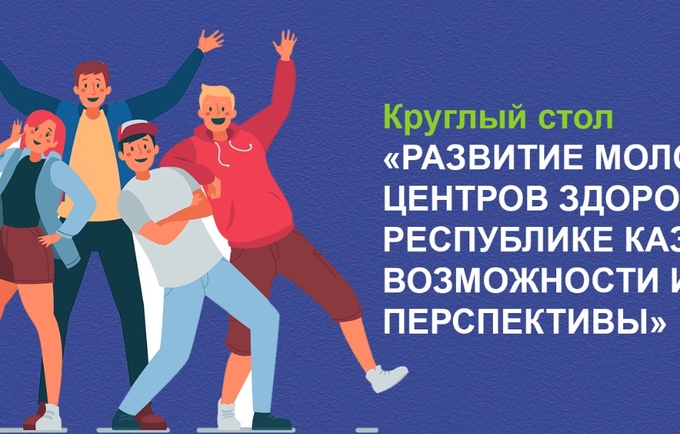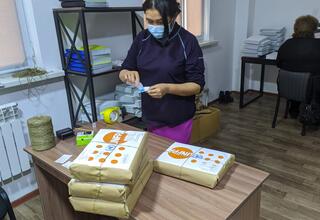16 June 2021 - KAZAKHSTAN - A round-table event entitled “Development of Youth Health Centres in the Republic of Kazakhstan; opportunities and prospects” has taken place today to present its results to partners and stakeholders and discuss ways of making further progress in providing sustainability to Youth Health Centres.
The concept of youth-friendly health services was introduced in Kazakhstan in 2006, while the structure and functions of Youth Health Centres (YHCs) was established in 2011.
What Youth Health Centres lacked was a sustainable model of development which could be used across all the other YHCs. For example, there were no standardized services, an accreditation system, clinical protocols and other vital elements in place. In the last two years, the Ministry of Health of Kazakhstan and UNFPA developed a strategy and practical tools to make Youth Health Centres a much needed point of contact for youth and adolescents to obtain services and counselling.
Within the project “Development of Youth Health Centres in the Republic of Kazakhstan; opportunities and prospects”, the Ministry of Health of the Republic of Kazakhstan and UNFPA have worked to put the national network of Youth Health Centres on a sustainable footing. This includes the development of a strategy for sustainable development of Youth Health Centres; a series of protocols governing the work of YHC’s specialists; a package of communications materials, including a website and a mobile application to raise awareness of reproductive health among adolescents and their parents; a series of clinical protocols governing ways of handling the most common problems of reproductive health of adolescents and youth as well as psychological and legal counselling. Support is also provided for the YHCs to become “resource” centres and ‘knowledge hubs’ for other organizations.A total of 300 YHC workers from all regions of the country have been trained during the implementation of the project.
“When it comes to young people, the importance of “fulfilling their potential” cannot be understated. The transition from childhood to adulthood is a vital period of development, not only in biological terms, but also emotionally, intellectually, socially and in terms of sexual awareness. Put simply, it is the time in a person’s life in which their identity as an individual within society is formed”, said Michaela Friberg-Storey, United Nations Resident Coordinator for Kazakhstan. “How well young people navigate these changes, and the choices that they make whilst doing so, will determine not only their future health, but the entire course of their lives. The challenges that young people face in the interconnected world of today are perhaps more complex than those of any generation before them. This in turn makes the work that we do all the more crucial.”
A sociological survey shows that a third of adolescents aged 15 to 19 in Kazakhstan are sexually active, yet 91% of them don’t have sufficient knowledge of HIV and AIDS. 14.8% of adolescents who had indicated being sexually active said that they had had at least one symptom of a sexually transmitted infection over the past 12 months. However, a large proportion (62.6%) of them had not sought any medical help to have their STIs treated.Adolescence is not only a period of physical and mental development, it is also the time of forming a worldview and behavioral norms. Adolescents face new and previously unfamiliar life situations. Rapid urbanization, development of communications, transport and technological progress open up new opportunities and at the same time pose serious risks to adolescent health. Lack of skills for conscious, healthy and safe behavior in adolescents exacerbate these risks. Therefore providing accurate, confidential and high quality information and services to youth is the cornerstone of ensuring that healthy adolescents today are healthy adults tomorrow and a healthy next generation.
For more information please contact Ms. Dina Teltayeva at teltayeva@unfpa.org or via tel.: +7701 7654010.



